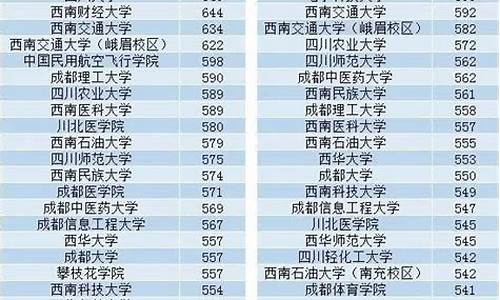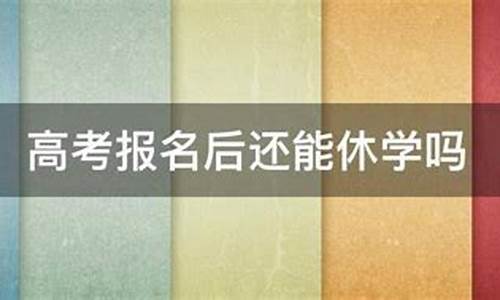您现在的位置是: 首页 > 教育改革 教育改革
2014高考英语阅读理解_2014高考阅读
tamoadmin 2024-05-23 人已围观
简介1.2014年浙江省高考题英语的第一个阅读翻译However wealthy we may be, we can never find enough hours in the day to do everything we want. Economics deals with this problem through the concept of opportunity cost, which s
1.2014年浙江省高考题英语的第一个阅读翻译

However wealthy we may be, we can never find enough hours in the day to do everything we want. Economics deals with this problem through the concept of opportunity cost, which simply refers to whether someone’s time or money could be better spent on something else.
Every hour of our time has a value. For every hour we work at one job we could quite easily be doing another, or be sleeping or watching a film. Each of these options has a different opportunity cost—namely, what they cost us in missed opportunities.
Say you intend to watch a football match but the tickets are expensive and it will take you a couple of hours to get to and from the stadium. Why not, you might reason, watch the game from home and use the leftover money and time to have dinner with friends? This—the alternative use of your cash and time—is the opportunity cost.
For economists, every decision is made by knowledge of what one must forgo—in terms of money and enjoyment—in order to take it up. By knowing precisely what you are receiving and what you are missing out on, you ought to be able to make better-informed, more reasonable decisions. Consider that most famous economic rule of all: there’s no such thing as a free lunch. Even if someone offers to take you out to lunch for free, the time you will spend in the restaurant still costs you something in terms of forgone opportunities.
Some people find the idea of opportunity cost extremely discouraging: imagine spending your entire life calculating whether your time would be better spent elsewhere doing something more profitable or enjoyable. Yet, in a sense it’s human nature to do precisely that—we assess the advantages and disadvantages of decisions all the time.
In the business world, a popular phrase is “value for money.” People want their cash to go as far as possible. However, another is fast obtaining an advantage: “value for time.” The biggest restriction on our resources is the number of hours we can devote to something, so we look to maximize the return we get on our investment of time. By reading this passage you are giving over a bit of your time which could be spent doing other activities, such as sleeping and eating. In return, however, this passage will help you to think like an economist, closely considering the opportunity cost of each of your decisions.
小题2:The “leftover ... time” in Paragraph 3 probably refers to the time ________.
A.spared for watching the match at home
B.taken to have dinner with friends
C.spent on the way to and from the match
D.saved from not going to watch the match
试题分析:文章大意:本文是一篇议论文。文章论述了不管我们多么的富有,在一天里我们不可能找到足够的时间做我们想要做的一切。因此,我们要放弃一些事情选择做更好的事情。
小题2:C考查词义推测。题中“leftover money and time”是指“剩下来的钱和时间”。根据文章第三段第一句Say you intend to watch a football match but the tickets are expensive and it will take you a couple of hours to get to and from the stadium.可知leftover … time所指的是“花在观看比赛(路上)来去的时间”。故C正确。
2014年浙江省高考题英语的第一个阅读翻译
C 篇
在人们心目中一个专业的训狮员就是一手挥鞭一手持椅的逗乐人。鞭子捕获了所有的注意 力,而事实上,鞭子大部分时间只是表演。 ,真正起作用的是椅子。当巡视员手拿椅子出现在狮子 面前,狮子试图把注意力同时放在四条椅子腿上。由于注意力被分散,狮子变得迷惑不知道下一步 做什么。当面对太多的选择,狮子选择僵持和等候,而不再攻击持椅人。 有多少次你感觉自己和狮子一样处于一样的境地?又有多少次你心存目标如减肥、开办企业或 是游历更多地方 ,但结果只是止于对眼前诸多选择的困惑而最终毫无进展? 这种情况一直是我不安烦恼,因为当所有的专家忙着讨论那个是最佳选择时,想要提升自我生 活的人们却被各种充满矛盾和冲突的信息所困惑。 最终的结果就是我们感觉不能集中精力或我们正 把精力投在错误的事情上,之后我们不再作为,进展很小,在我们 本能提升的时候却原地不动。 事情本不必那样。 任何时候当你发觉世界在你面前惠东椅子时, 记住这点:你需要的就是集 中精力做好一件事。你只需立即开始。 在你感觉就绪前 就开始行动是许多成功人士的习惯。如果 你有想要去的地方,想要完成的事情,想要成为某种人士。 。 。立即采取行动!如果你清楚地知道你 想要去的地方,世界所有其他不是帮助你到那就是为你让路。
D篇
随着越来越多的人说诸如英语、汉语、西班牙语和阿拉伯语等世界语言,其他语种正迅速 消失。事实上,根据世界教科文组织的调查,今天在世界上使用的 6000-7000 种语言中的一半很可 能将会在下一个世纪消亡。 在阻止语言消亡的努力中,来自许多组织的学者,包括教科文和国家性地质人员在内,已经花费 许多年时间在整理那些正在消亡的语言和文化。 M 耶鲁大学的一位科学家,专注于喜马拉雅山地区的语言和口述的传统,也正在记录那的传统。他 最近出版的那本书,就出自他在尼泊尔的一个村子的生活、工作和抚养一个家庭的经历。 记录 T 的语言和文化,对于他来说只是一个起点,他努力寻求其他的语言和传统,包括喜马拉 雅山地区的印度、尼泊尔、不丹和中国。 。但是他不满足于仅仅记录那些即将消亡的声音。 在剑桥大学他发现极有价值的重要资料包括照片,**,录音材料,驻地记录等,这个仍然未 被研究急需关注和保护。 现在通过他创建的两个组织他已经发起了一项运动以便使在世界范围内的图书馆和储藏的资 料能为年轻一代所用, 而不仅仅局限于那些学者。 M 说, 多亏有数码技术和遍及全世界的网络技术, 那些濒危的语言才能够被拯救并与各语言研
财富曾始于一个目标节约一元钱。把它叫做储蓄罐策略。有在这历史悠久的硬币节能容器的经验教训。 任何艰巨的任务似乎当减小到婴儿的步骤更简单。假如你想爬上12000英尺高的山上,并可能一天的时间去做它,你将只需要爬33英尺每天达到顶峰的一年。如果你想采取一个非常好的行程,10年为一个特殊的场合,收取1.5万美元的成本,你必须保存一天3.93美元。如果你删除一个成一个储蓄罐,然后每年一次把1434美元在一个储蓄帐户在1%的利率税后,你将有你的旅行的钱。 当我还是个孩子,我的父母给了我一个储蓄罐教我说,如果我想要的东西,我要攒钱买它。我们扑满与孩子联系起来,但在许多国家,小容器也深受成年人。欧洲人看到一个储蓄罐作为吉祥和财富的象征。在世界各地,许多人认为在元旦储蓄罐的礼物带来好运和财务上的成功。啊,但你必须把它的东西。 为什么猪作为储蓄的象征?为什么不象银行,这是更大,并拥有更多的硬币?在中世纪,现代银行和信用工具之前,人们节省下来的钱在家里,几个硬币在一个时间投进一个罐子或盘子。制陶工从一个桔**的黏土制成所谓的这些廉价的容器“pygg,”和人在pygg jars.The中古英语单词储存硬币 猪是“pigge”。而撒克逊人明显pygg,指的是粘土,为“哈巴狗”,最终这两个词变成相同的发音,听起来“我”在猪或小猪。因为这个词成为与橙色粘土和更多的动物,一个聪明的陶工塑造一个pygg罐子在猪的形状,取悦儿童和成人较少有关。扑满诞生了。 本来你必须打破银行取到钱,带来严肃的感觉变成储蓄。虽然扑满教孩子储蓄的智慧,成年人往往需要重新学习的童年经验教训。想想看,需要大量的金钱在生活中的事情---大专以上学历,婚礼,汽车,医疗,创业,置业,和有趣的东西一样伟大的旅行。所以,当你有钱,脱下的前10%,把它放在一边,保存和明智地投资。









